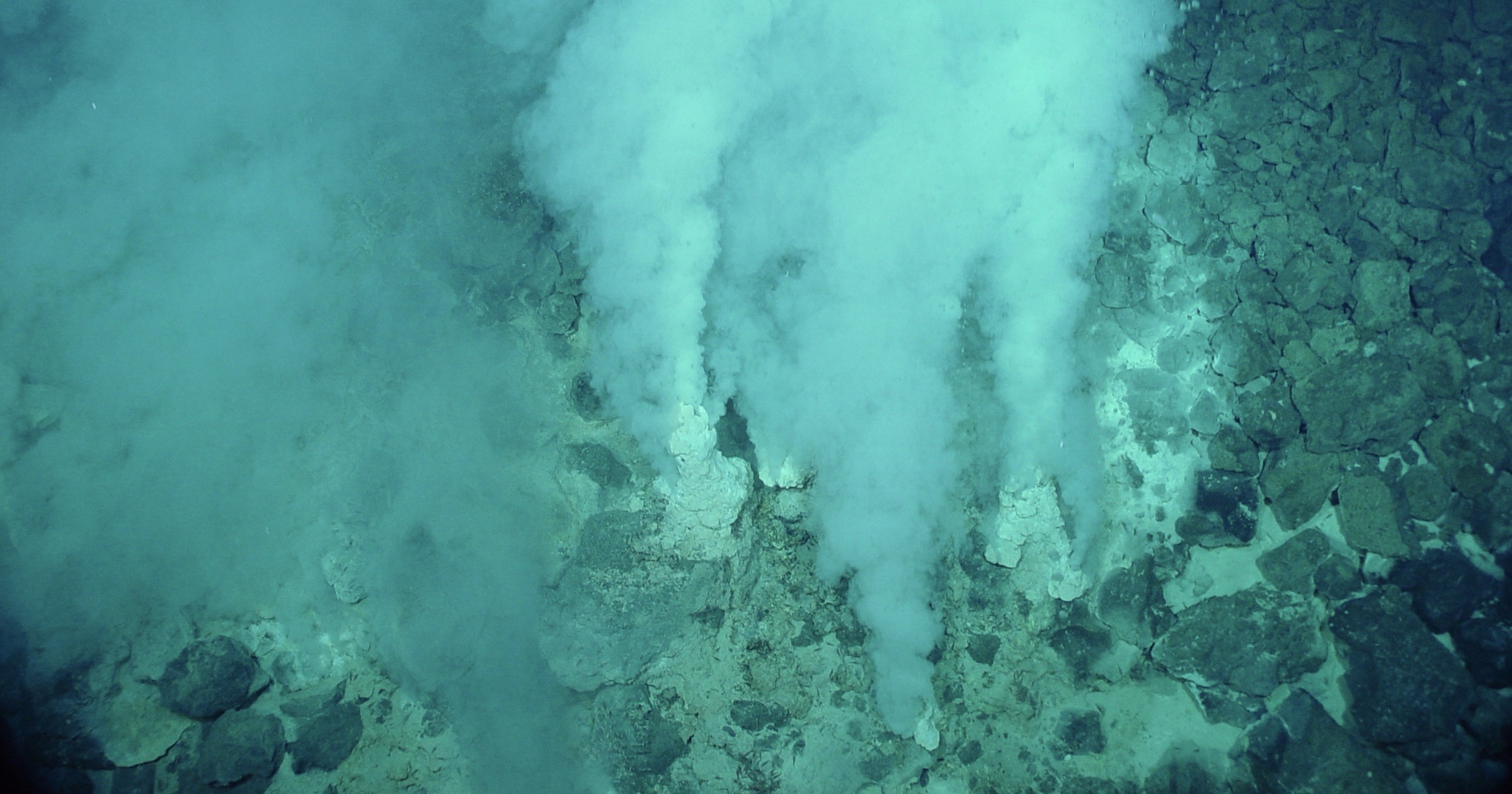 Evolution
Evolution
 Intelligent Design
Intelligent Design
Charles Marshall: Origin of Life Could Have Happened “Millions of Times”

Charles Marshall at U.C. Berkeley represents establishment opinion in current evolutionary theory, and for good reason: he’s a thoughtful, well-informed, wonderfully wide-ranging paleontologist. Marshall, originally from Australia, did his PhD at the University of Chicago under the late David Raup (who died in 2015). Raup himself was a key bridge person between mainstream evolutionary theory and ID. Raup became a close friend of Phillip Johnson, attending the latter’s breakthrough ID meeting at Pajaro Dunes in June 1993, where several of us met Raup.
Raup used the MS of what later became Darwin on Trial as seminar reading material with his graduate students, including Marshall. And during his undergraduate years in Australia, Marshall interacted with faculty who were skeptical of many aspects of standard evolutionary theory. Marshall and I overlapped as graduate students at the U of C, where in evolution seminars one could always count on him for insightful comments.
When Marshall reviewed Stephen Meyer’s Darwin’s Doubt in 2013 for the journal Science, it was Marshall who brought the book to Science and requested to do a review. Science reviews only about 100 books per year, at most, so making the cut for a full review is a big deal, but having Marshall himself suggest the review is the key point.
I mention this backstory because it’s relevant to Marshall’s current turn of thought. Marshall is aware of ID thinking.
LUCA as a Discrete Cell?
In a talk on the origin of life, delivered last week and just posted in the Science at Cal YouTube series, Marshall joins the ranks of those arguing that LUCA (last universal common ancestor) did not exist as a discrete cell:
The larger context is Marshall’s new-found enthusiasm for the alkaline vent, “white smoker” OOL hypothesis of Nick Lane, William Martin, and Mike Russell.
In his talk, Marshall explains some of the reasons he favors the alkaline vent OOL scenario:
1. For starters, the scenario posits a multiplicity of possible sites on the ocean floor, not a single or small handful of lucky terrestrial locales. Thus, the OOL could have happened “millions of times” (44:42), Marshall said.
2. Vertical descent is “very slow” (42:25) as an evolutionary process. But horizontal transfer among multiple independent lineages enables a “vast exchange of information” to accelerate the sharing of innovations.
3. The major domains “cellularized independently” of each other (about 40:30). LUCA was not a discrete cell.
A Contradiction in Marshall’s Argument
There are other fascinating aspects of Marshall’s talk — don’t miss his concluding comments at about 1:17:00, about the danger of believing one’s own hypothesis, and therefore the necessity in science of multiple competing ideas — but here I want to highlight a contradiction in his argument.
Marshall argues (40:10) that the universality of the genetic code, the protein translation machinery (the ribosome, etc.), and other apparently universally shared features of cells, support a scenario in which these features arose within “the same chimney” in an alkaline hydrothermal vent. In other words, we’re back to the single theater model of OOL.
But if the main explanatory attraction of the alkaline vent story is the “massively parallel process” of “hundreds of thousands or millions” (44:00 and following) of OOL theaters in which the RNA World began independently in various localities, then one sacrifices all that probabilistic advantage, and the benefits of horizontal transfer, by reverting to a single chimney to explain the genetic code. “We don’t have to rely on a ‘freak environment’” Marshall says (44:45) “to explain the origin of life.”
Here’s an imaginary dialogue:
Marshall: The universality of the genetic code points unmistakably to a single chimney — one locality where the code first arose.
Skeptic: Why a single chimney?
Marshall: The 64 codon assignments are “ridiculous details” (40:09) — chemically arbitrary.
Skeptic: So these codon assignments would not have happened more than once? Looks like one chimney got lucky.
Thus, unless I misunderstand (always a live possibility), we’re back to postulating a “freak environment,” meaning the OOL explanation is a one-off event after all. The chemical determinism of hundreds of thousands, or millions of alkaline chimneys operating in parallel disappears, and we’re back to one very lucky setting.
The Nature of Chemical Explanation
The deeper problem is the nature of chemical explanation. If I give you a deterministic chemical pathway by which A —> B —> C, then that pathway can and will occur wherever and whenever the correct antecedent conditions are present. Appeals to luck go down, or go away entirely.
Students in a high school chemistry lab don’t want to rely on luck. They want to rely on the lab manual. If we learn enough about the chemical pathway to the genetic code, as Michael Yarus argues, we pull its origin away from “chancy historical contingency, one-off event” towards “it’s gonna happen when the ingredients are ready.” Meaning the code could arise more than once, and probably did.
